When salmon go vegetarian, watch the vitamins
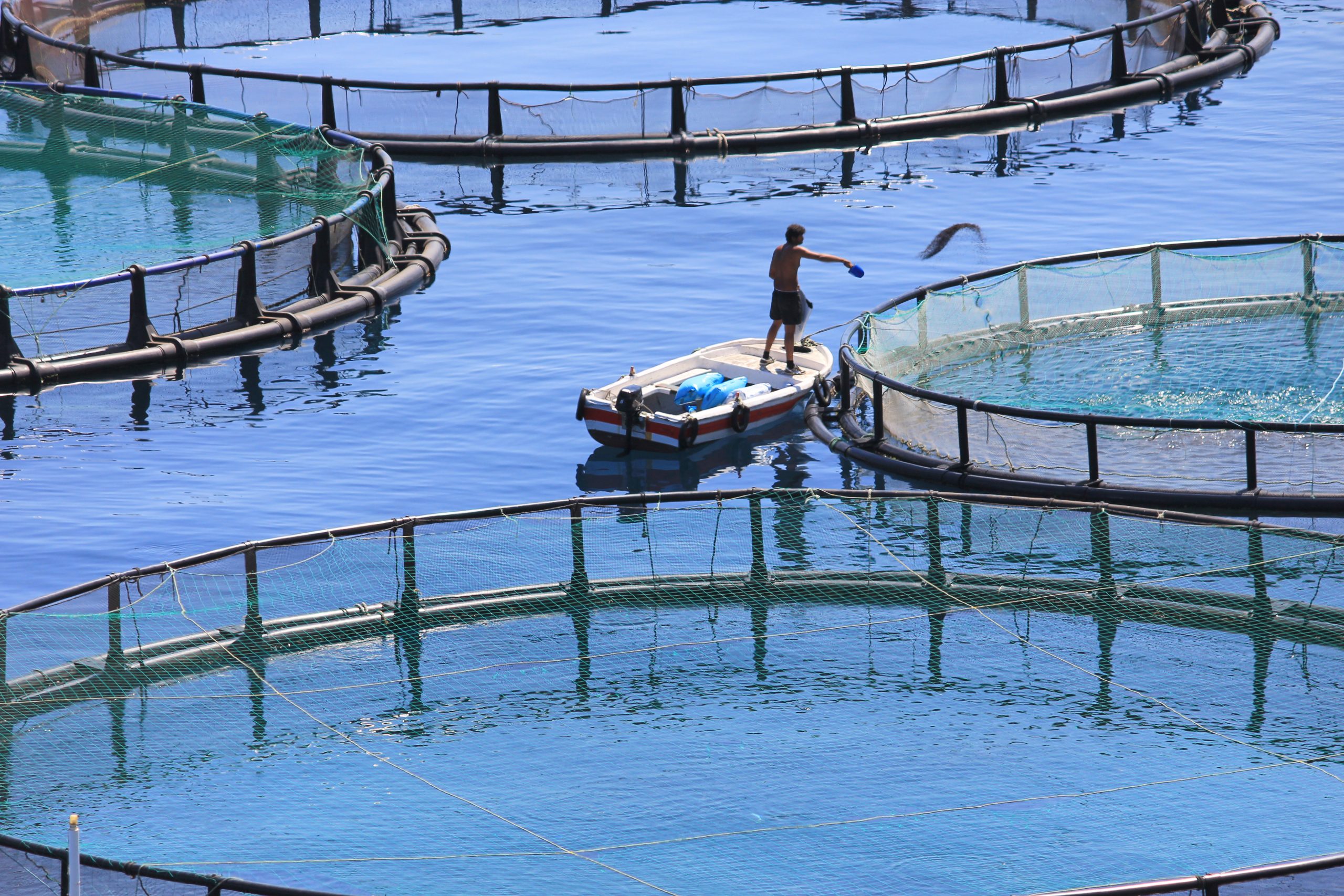
Plant ingredients are being increasingly used in farmed fish diets. But what does this mean for the nutritional value of the diet? Norwegian researchers looked at whether vitamin B supply needs to be adjusted when plant ingredients are used in the diet of Atlantic salmon.
Many fish diets are moving away from having high levels of fish meal and fish oil in them. From an environmental perspective, alternative protein sources for fish meal are applauded as this will reduce the pressure on wild catch fish for production of fish meal.
Often, fish meal is replaced by plant based ingredients. However, Atlantic salmon (Salmo salar) diets with a high inclusion of plant ingredients deviate substantially in nutrient composition from diets based on fishmeal. There could be an issue with the amino acid profile for example and plant based ingredients can have anti-nutritional factors.
New diets cause lack of B-vitamins
Very essential nutrients, such as B-vitamins, can be reduced to a great extent when fish meal is replaced. General symptoms for B-vitamin deficiency are reduced growth and appetite. It has been concluded in other studies that both level and form of B-vitamins and some of the indispensable amino acids, are significantly different in plant ingredients versus fish meal. Previously, when fish meal was the main protein source, B-vitamins were in surplus, thus diminishing the consequences of B-vitamin degradation caused by feed production processes. However, since plant protein ingredients contain lower levels of B-vitamins and/or chemical forms with lower bioavailability, knowledge on recommended B-vitamin levels added to feed prior to processing is needed. Based on available information, the level of riboflavin (B2), vitamin B12 and niacin (B3) are low in plant protein materials compared to fish meal. Corn gluten is low in pantothenic acid and pea meal is low in vitamin B6; all these plant ingredients are readily used in fish diets. In addition, plants are low in methionine and lack taurine. Taurine is not regarded as an indispensable amino acid, but is present in large quantities in marine feed ingredients and considered important in the prevention of fatty liver in animals.
Trials with different nutrient levels
For many of the B-vitamins, no recommendations exist for Atlantic salmon, including lack of data of B-vitamin levels in feed and hence organs. This is why a group of Norwegian researchers from the National Institute of Nutrition and Seafood Research (NIFES), Biomar and GIFAS conducted trials, aiming to re-evaluate current recommendations for nutrient supplementation when Atlantic salmon are fed diets based on plant ingredients. They looked at the B-vitamins biotin (B7), folate (B9), niacin (B3), pantothenic acid (B5), pyridoxine (B6), riboflavin (B2), thiamine (B1) and cobalamin (B12) in plant ingredient based diets for Atlantic salmon.

This study is part of the larger EU-funded Arraina project, which has the aim to establish updated micronutrient recommendations for several farmed fish species, when fed diets with high plant ingredient levels. This study is based on two full regression studies: one with Atlantic salmon parr in freshwater (trial 1), and one with Atlantic salmon post-smolt in seawater (trial 2). Both studies were designed in a dose-response manner with the exact same diet-design, using seven diets with graded levels of a nutrient package (NP) added to a basic diet high in plant ingredients. The NP contained essential vitamins, minerals, cholesterol and amino acids (25 nutrients in total). 0NP had no addition of the micronutrient premix, then the NP was added in graded amounts to the six diets called 25NP, 50NP, 100NP, 150NP, 200NP and 400NP. The general idea was that the 100NP diets should contain 100% of the assumed requirement (based on available data, primarily for rainbow trout (NRC, 2011) for each nutrient. The 25NP would cover 25% and 400NP would cover 400% of earlier estimated requirement for salmonids.
Vitamins in feed and body tissue
In parr (trial 1), growth, health and welfare parameters responded on NP additions, but this was not observed in the seawater stage (trial 2). During three months of feeding, parr tripled their weight (Table 1). They grew from an initial weight of 18.3 grams to a range of 78.6 – 87.3 grams.
Parr given diets added the NP above NRC (2011) showed improved protein retention, and reduced liver and viscera indices. Post-smolt fed the same diets during five months showed a doubling of weight, but did not respond to the variation in NP to the same extent as parr. Significant regressions were obtained in body compartments for several of the B-vitamins in the premix. Whole body biotin concentration was unaffected by micronutrient premix level, and mRNA expression of the enzymes dependent of biotin showed only weak increases with increased biotin. Muscle thiamine (Figure 1) plateaued at a diet level similar to NRC (2011) recommendation in freshwater, and showed stable values independent on premix addition in seawater.
Figure 1 – Vitamin B6, B12, thiamine (B1) and riboflavin (B2) in diet (x-axis) and muscle tissue (y-axis).

Niacin showed a steady increase in whole body concentrations as feed niacin increased. Muscle riboflavin peaked at a diet level of 12.4 mg / kg. Sufficient riboflavin is important to avoid e.g., development of cataract. Cataract was not registered to be any problem, neither in fresh- nor in seawater. Cobalamin (B12) in muscle and liver was saturated at 0.17 mg / kg diet. Muscle pyridoxine showed a dose-dependent level in muscle, and peaked around 10 mg / kg diet. There was also a dose response effect (improved performance) seen for niacin (at a dietary level of 66 mg /kg), riboflavin (at a level of 10-12 mg / kg), pyridoxine (10 mg / kg) and pantothenic acid (22 mg / kg). Survival was high in both trials, close to 100%, and with no difference between diet groups.
Above NRC recommendations
Farmed fish are becoming more vegetarian and the change in diet ingredients where the majority of proteins and lipids come from plants will need adjusted micronutrient premix additions to secure optimal growth and metabolism. Due to faster growth, with a four-fold increase of weight in the parr stage, and doubling of weight in the post-smolt stage, the data from the studies presented here are based on a short period of the production, but indications for both life stages are similar regarding body levels of the B-vitamins. Based on these results, recommended B-vitamin supplementation in plant based diets for Atlantic salmon should be adjusted. Biotin and thiamine levels were sufficient in plant based diets, as no addition beyond the feed ingredients seemed to be necessary. The other B-vitamins are recommended to be added at or above NRC (2011) recommendations for salmonids to optimise growth, hinder change in liver lipid deposition, and saturate biomarkers specific for each vitamin. Therefore, based on current data updated recommendations for Atlantic salmon parr and post-smolt stages, the researchers suggest the following adaptations. Niacin inclusion of around 65 mg / kg diet (now 1 -10 mg / kg), riboflavin at 10 – 12 mg / kg diet (now 4 -7 mg / kg), cobalamin at 0.17 mg / kg diet (now 0.02 mg / kg), folate at 3.3 mg / kg diet (now 1 – 2 mg / kg), pyridoxine at 10 mg / kg diet (now 2 – 16 mg / kg), and pantothenic acid at 22 mg / kg diet (now 20 mg /kg). The researchers’ advice to be aware of confounding effects due to the multi-approach design.
Summarised by Emmy Koeleman, original manuscript by Gro-Ingunn Hemre, National Institute of Nutritional and Seafood Research (NIFES), Norway.
This article has been edited from the original paper: Atlantic salmon (Salmo salar) require increased dietary levels of B-vitamins when fed diets with high inclusion of plant based ingredients, published in PeerJ, 2016; 4: e2493.
Join 26,000+ subscribers
Subscribe to our newsletter to stay updated about all the need-to-know content in the feed sector, three times a week. Beheer
Beheer

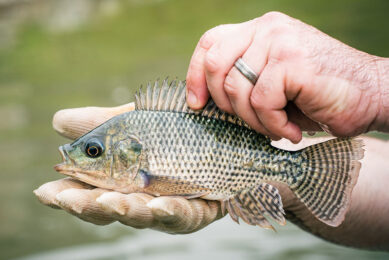
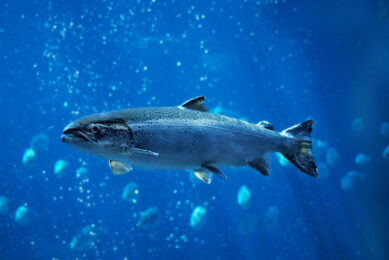

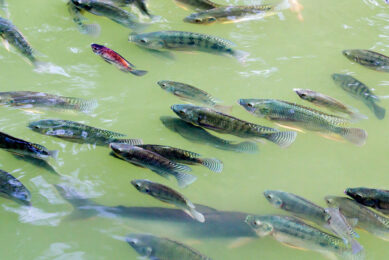
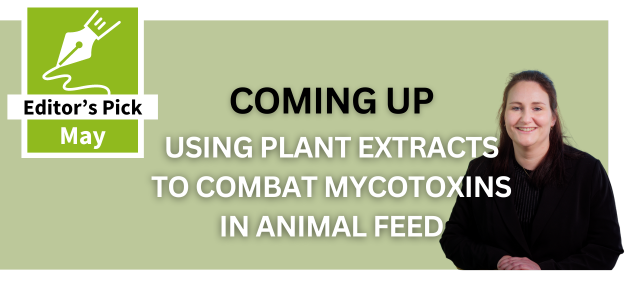



 WP Admin
WP Admin  Bewerk bericht
Bewerk bericht